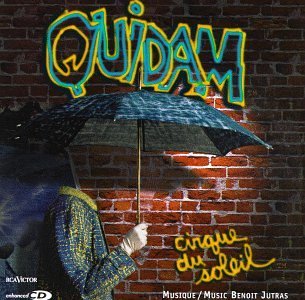
| Artist: | Cirque Du Soleil |
| Title: | Quidam |
| Released: | 1996 |
| Label: | RCA Records |
| Time: | 46:29 |
| Producer(s): | Carl Marsh, André Waquant |
| Appears with: | |
| Category: | Pop/Rock |
| Rating: | *******... (7/10) |
| Media type: | CD Enhanced |
| Purchase date: | 1999 |
| Price in €: | 15,99 |
| Web address: | www.cirquedusoleil.com |